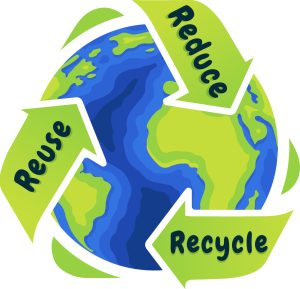On March 31, 2025, England will implement new recycling regulations under the “Simpler Recycling” initiative, aiming to standardize waste management across businesses and non-domestic premises. This legislation mandates the separation of specific waste streams to enhance recycling efficiency and environmental sustainability.

Key Requirements
From March 31, 2025, all businesses and non-domestic premises in England are legally required to separate the following waste types:
- Dry Recyclable Materials:
- Glass: Empty bottles and rinsed food jars.
- Metal: Drink cans, rinsed food tins, empty aerosols, aluminium foil, trays, and tubes.
- Plastic: Rinsed empty food containers and bottles.
- Paper and Cardboard: Old newspapers, envelopes, delivery boxes, and packaging.
- Food Waste:
- Leftovers and waste generated from food preparation.
- Black Bin Waste (Residual Waste):
- Non-recyclable items such as absorbent hygiene products and heavily contaminated materials.
Businesses generating garden waste must manage it according to the waste hierarchy, opting for recycling or composting to achieve the best environmental outcome.
Micro-firms, defined as workplaces with fewer than 10 full-time employees, have until March 31, 2027, to comply with these requirements.
Health and Safety Considerations
Implementing these waste separation practices necessitates attention to health and safety protocols:
- Manual Handling: Ensure employees are trained in proper lifting techniques to prevent injuries when handling waste containers.
- Hygiene: Provide appropriate personal protective equipment (PPE), such as gloves and aprons, especially when dealing with food waste, to prevent contamination and maintain hygiene standards.
- Storage: Designate specific areas for different waste types, ensuring they are clearly labelled and easily accessible to minimize the risk of accidents.
Environmental Impact
Adhering to the new regulations will significantly benefit the environment by:
- Reducing Landfill Waste: Proper segregation ensures recyclable materials are processed appropriately, decreasing the volume of waste sent to landfills.
- Conserving Resources: Recycling materials like glass, metal, and plastic reduces the need for virgin resources, thereby conserving natural resources and energy.
- Minimizing Pollution: Effective waste management reduces pollution associated with waste disposal and resource extraction.
Fire Safety Measures
Proper waste management also plays a crucial role in fire prevention:
- Battery Disposal: Items containing batteries, such as vapes, should be disposed of correctly to prevent fire hazards. Damaged or improperly discarded batteries can cause fires in waste facilities.
- Storage Practices: Avoid overfilling waste containers and ensure they are kept away from heat sources to reduce the risk of combustion.
- Regular Inspections: Conduct routine checks of waste storage areas to identify and mitigate potential fire risks promptly.
Steps to Compliance
To align with the upcoming regulations, businesses should:
- Conduct a Waste Audit: Assess the types and volumes of waste generated to determine appropriate segregation methods.
- Engage with Waste Collectors: Discuss collection arrangements with waste management providers to ensure compliance with the new separation requirements.
- Implement Staff Training: Educate employees on proper waste segregation practices and the importance of adhering to the new regulations.
- Monitor and Review: Regularly review waste management practices to ensure ongoing compliance and identify areas for improvement.
Conclusion
The forthcoming recycling legislation represents a significant step toward environmental sustainability in England. By proactively adapting to these changes, businesses can contribute to a greener future while ensuring compliance with legal requirements.
Contact us for further information.